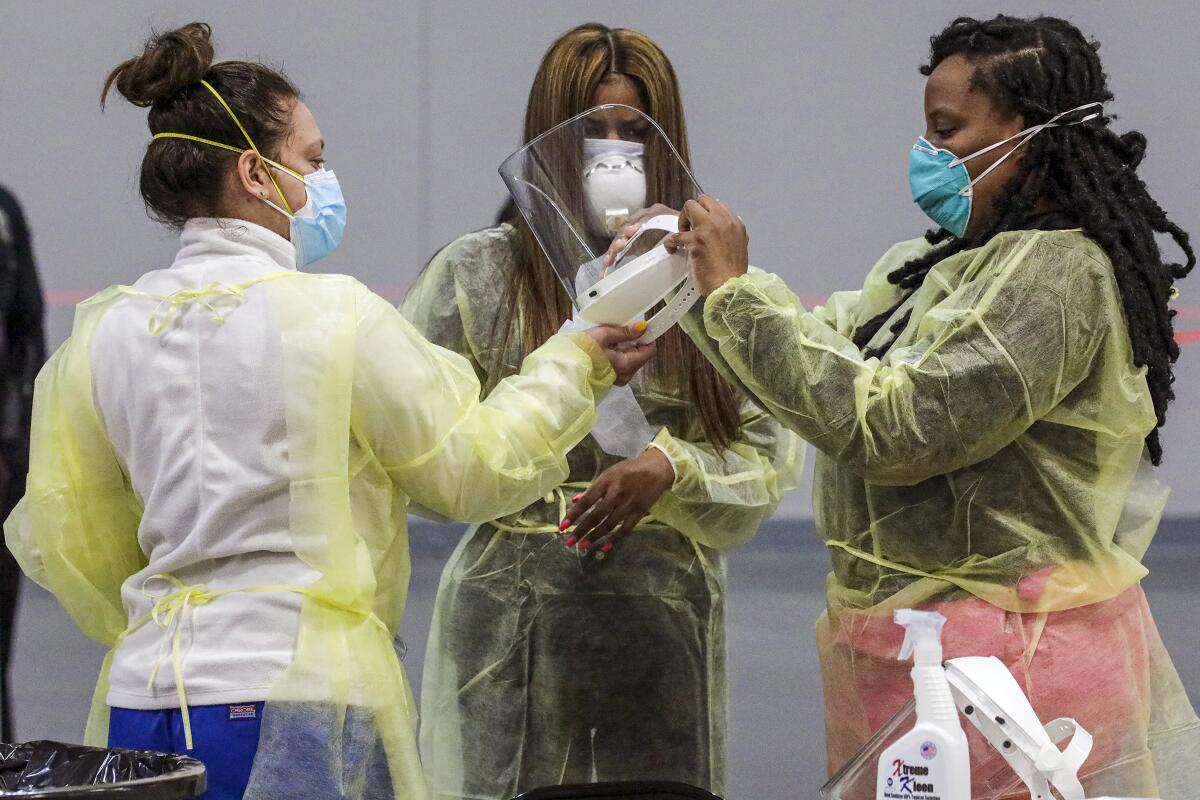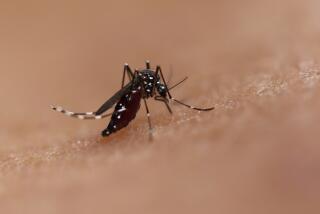First case of Brazilian coronavirus variant P.1 detected in California

- Share via
A San Bernardino County resident is the first in California to test positive for a coronavirus variant from Brazil, known as P.1, that is believed to be more contagious than the most common strain of the virus, officials said.
The news arrives just as San Bernardino and other Southern California counties are beginning to reopen more sectors of their economies, including indoor operations at restaurants, movie theaters and gyms.
San Bernardino County officials were alerted to the case Saturday by state public health officials. It was detected by Fulgent Genetics in a positive test sample collected March 2, according to a county news release.
The resident, a man in his 40s, reported experiencing symptoms and is self-isolating at home, the release said.
County contract tracers first contacted the man March 3 and are continuing to investigate how he was exposed to the variant.
“We are taking immediate and aggressive action to contact trace and contain the virus and working with the California Department of Public Health in expanding whole genomic sequencing to identify more cases,” county Health Officer Dr. Michael Sequeira said in a statement.
The P.1 variant first arrived in the U.S. in January, when a Minnesota resident fell ill after traveling to Brazil and subsequently tested positive for the strain. P.1 is distinct from another variant detected in Brazil, P.2, of which several cases have been found in California, including in late November in San Diego.
Health authorities believe P.1 may be more contagious than the most frequently encountered strain of the virus. It was linked to an abrupt resurgence in cases in Manaus, Brazil, that took place after much of the population was already believed to have been infected.
Both the P.1 and P.2 variants share a mutation that appears to help the virus evade antibodies generated by either a previous infection or a vaccine, according to Dr. Benjamin Pinsky, medical director for Stanford’s Clinical Virology Laboratory.
There have been examples of people being infected with P.1 and P.2 variants after they had been infected by another strain, he said, adding that the finding has led researchers to theorize that the two strains may have similar properties. Other coronavirus strains have also been found to infect those previously infected.
San Bernardino County officials said in a news release that it’s not clear whether the P.1 variant is more resistant to COVID-19 vaccines.
According to Sequeira, the Johnson & Johnson vaccine was tested in Brazil, where it showed 0% mortality and 85% success in preventing hospitalizations and severe infections.
San Bernardino recently moved from the highly restrictive purple tier of the state’s reopening plan to the less-restrictive red tier. Officials said the county’s coronavirus metrics are moving toward qualifying it for the orange tier, which is even more lenient.
Times staff writer Alex Wigglesworth contributed to this report.
More to Read
Sign up for Essential California
The most important California stories and recommendations in your inbox every morning.
You may occasionally receive promotional content from the Los Angeles Times.











